What Cameras do Private Investigators Use?
July 28, 2021 - Reading time: 10 minutes
Updated on: August 7, 2025
One undoubtable aspect to private investigation and surveillance assignments is photography. After all, in most surveillance cases our clients are effectively paying us to take the best possible photos/video which can be used as evidence. This article will touch on some of the cameras and technology which is regularly used by us during investigations.
Private investigators use a wide variety of different camera gear, with much depending on the preferences of the agent and the circumstances in each case, such as the lighting conditions and our proximity to the subject. For long range and general photography, a DSLR camera would usually be the go-to choice, however, we also use video cameras or covert cameras depending on the case and needs of our client.
We rely on the discretion of our agents to select what they feel would be the most appropriate camera in each case; and we believe that this is the best approach. When instructing a private investigator, you are effectively paying for their experience and know-how, and should be able to trust their ability to make critical decisions such as their choice of camera. As such, we cannot guarantee which type of camera might be used during any given case, and this article may or may not reflect the type of camera gear used in your case.
Technology and especially camera gear is constantly evolving and new models are constantly being released. As with most private investigators, we try our best to keep up with the latest gadgets and tech.
Video cameras
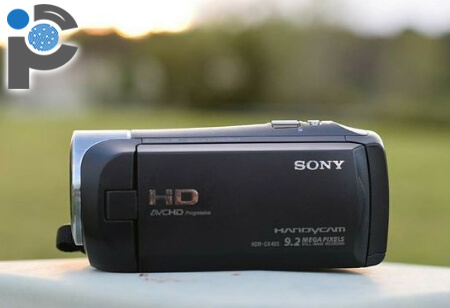
In cases where the primary goal is to gather video evidence, then a dedicated video camera would usually form a better option rather than the video function of a camera primarily designed for taking still photos. Many private investigators rely on video cameras as their primary camera during surveillance cases.
So, what is a good all-round video camera for surveillance? Sony Handycams have been a great option for many years and remain the top choice for many private investigators. We recommend the HDRCX405 model, or the AX53 4K if your budget can stretch to it. High-definition video, and increasingly 4K video, is the typical benchmark for video footage… Whatever your choice of camera, you should look for a device which records in at least 4K resolution.
Besides the Sony Handycam range, the Panasonic HC-VXF990 is another good camcorder for capturing 4K video.
DSLR cameras

With DSLR cameras, your choice and selection of lenses will be arguably as important as the actual camera itself. Surveillance agents typically use 3-5 different lenses, such as a wide-angle lens used to photograph large areas, a lens for close range photography, a medium range lens, and a lens for long range photography. There is a whole world of DSLR lenses out there, with the right choice in each case depending on the model of camera being used and the use case.
In terms of entry level DSLR cameras, we recommend either the Nikon D3500 or Canon EOS Rebel SL3 (EOS 250D). Notably, this Canon model is also capable of recording videos in 4K resolution.
One of the main advantages of DSLR cameras is their ability to capture images a very long distance away from the subject, when combined with an appropriate lens.
Action cameras
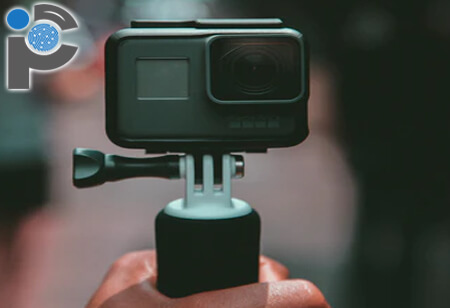
Action cameras are not typically used by private investigators during surveillance cases, however, there are some circumstances where they can be used.
A private investigator is not likely to walk around with a GoPro strapped to their head, however, if the agent is dressed as a cyclist or motorcyclist, and wearing a helmet camera, or a camera attached to their torso, then the camera would be much less likely to arouse suspicion.
Action cameras, when combined with a suitable tripod or mount, can be useful to record video from the inside of vehicles, and other spaces where traditional equipment might not fit. They are occasionally concealed and used as hidden cameras, though covert cameras are typically easier to conceal for undercover work.
When it comes to action cameras, we recommend GoPro or SJ CAM products, though there are many other companies producing good quality action cameras.
When choosing an action camera, it’s worth paying more for a device which records in at least 4K resolution. If you intend to conceal the device, then be sure to check that its status LED can be turned off. Otherwise, if your camera has a blinking LED which indicates that it is recording, then it might need to be covered with tape or black marker in order for the camera to become more discreet.
Hidden cameras
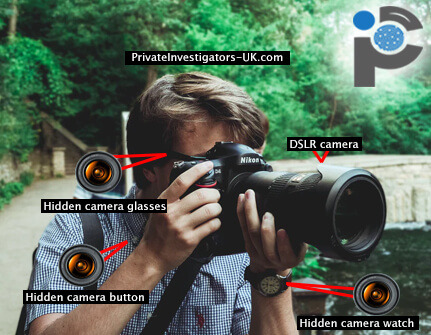
Private investigators typically own several different hidden cameras which can be concealed into different outfits during undercover assignments. Some of our favourite hidden cameras include the baseball cap hidden camera and the key fob hidden camera. They can be used and incorporated into many different assignments without the need to prepare by modifying clothing to suit the cameras.
Of course, we rely on many other hidden cameras during surveillance cases, but just as the old adage goes, we believe that a good private investigator shouldn’t reveal all his tricks!
Dashboard cameras
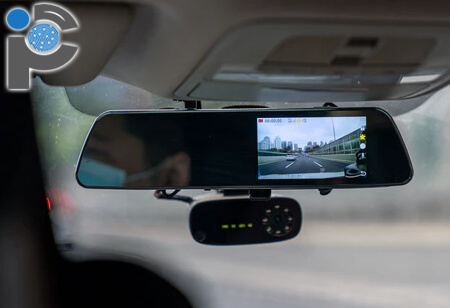
It is not very often that a private investigator will typically use their dash camera to gather evidence for a surveillance case. However, whether or not you are a private investigator, having a dash cam inside your vehicle just makes sense for many different reasons.
Many dash cameras only record footage looking forward onto the road from the front windshield. We would suggest that this is not enough – if you are going through the effort to install a dash cam, then it’s worthwhile adding an additional rear facing camera mounted above your rear windscreen or outside the vehicle.
It’s possible to take your dash cam setup another step forward by adding multiple cameras to your vehicle. Some setups can include up to 5 or more cameras, which film video down both sides of the vehicle as well as the front and rear, covering all angles.
Image quality is very important with dash cams, and we would again recommend that you look for a dash cam which records HD video in at least 4K resolution. Lower resolution dash cameras might struggle to record vehicle number plates, rendering them useless for evidential purposes.
Camera tripods
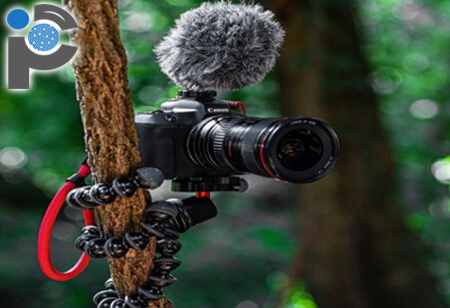
Private investigators should use tripods or gimbals to stabilize their cameras wherever possible. Especially when shooting video, a tripod will help to provide clear and professional footage. For mobile surveillance which is being conducted from a car, the investigator will need to choose a tripod suitable for their vehicle.
In addition to a main tripod or gimbal suitable for the use case, we also recommend keeping a GorillaPod handy. Their flexible arms can be wrapped around and attached to car head rests, handles, trees, railings, and many different objects where a traditional tripod would not be able to fit. They can also act as a handle for the camera when not fixed to an object.
Backup camera
Cameras can occasionally break, malfunction, or fail to work, and it’s always a good idea to make sure that you have at least one backup camera whilst conducting surveillance; whether that is a DSLR camera, video camera or even a point and shoot.
High-capacity memory cards are inexpensive and a competent surveillance agent will always be sure to have spares. It’s also a good idea to carry a power bank or spare batteries which can be used to recharge devices during assignments, should this be necessary.
A word of caution
When purchasing any type of camera equipment, remember the adage “buy nice or buy twice”. We recommend purchasing brand name cameras new and from reliable sources.
There are many counterfeit devices floating around on the market, and low-quality cameras which make false claims about their specifications. When purchasing a dash camera, for example, you are likely to find cameras which claim to record in 4K resolution, but that are merely recording in a lower resolution and resizing their footage digitally. Devices may also lie about the frame rate which they record in.
We extend these words of caution when it comes to purchasing memory cards. There are many, many fake/counterfeit memory cards in the market. These memory cards are sold in packaging which looks exactly the same as genuine products, however, counterfeit memory cards have a tendency to lose data, which has the potential to cause no end of problems for an investigator… Imagine losing all of the images gathered after a surveillance assignment due to a faulty memory card. Purchasing memory cards from reliable vendors can help to avoid this issue.
Related articles
If you enjoyed this post then check out these related articles:
You are reading the PrivateInvestigators-UK blog — home to the UK's leading detective agency. Learn more about us by visiting our homepage PrivateInvestigators-UK.com.